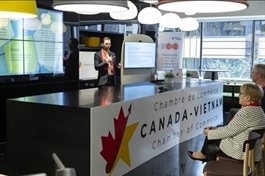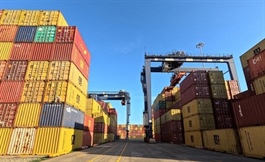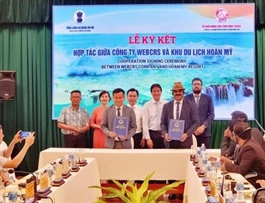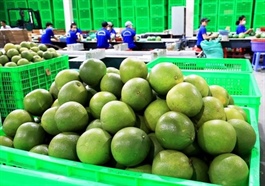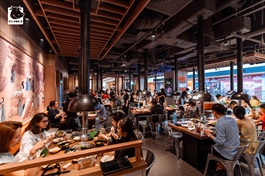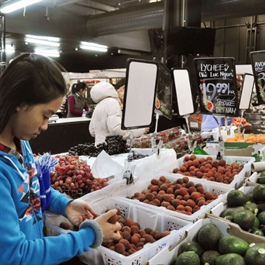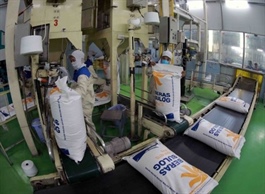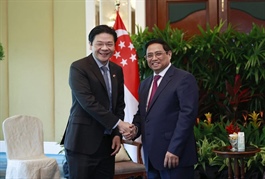Tourism firms struggle with staffing for peak summer season
Tourism firms struggle with staffing for peak summer season
The tourism industry is in desperate need of qualified workers as the peak summer travel season begins.
As many tourism businesses face staffing shortages during the busy Summer tourism season, various solutions have been proposed to build a workforce to meet seasonal demands.
Lack of qualified personnel
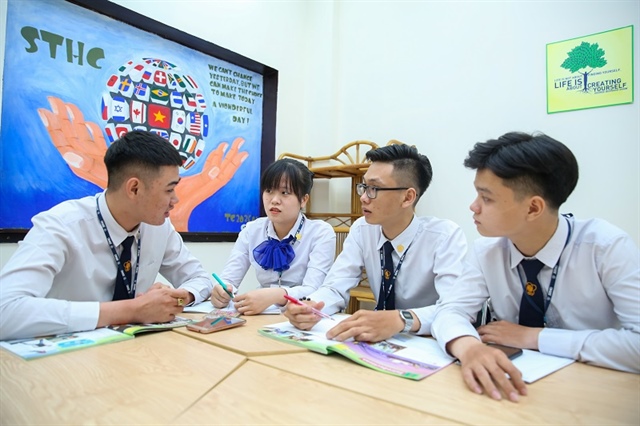
One of Vietnam's priorities is to develop human talent in tourism and hospitality. Photo: Le Nam |
According to travel and accommodation providers, from the end of 2023 to the beginning of 2024, the number of tourists has increased significantly, leading to a high demand for recruitment, putting them under considerable pressure.
Nguyen Van Tai, Director of VietSense Travel Company, said the company has been regularly recruiting sales staff for outbound tourism and marketing/communication positions during the Summer months. However, they still haven't been able to fill these positions with qualified candidates.
"Many people who were hired on a trial basis had to leave because they could not meet the job requirements. There are few experienced and long-serving staff, while new tourism graduates are still weak in terms of qualifications and skills," he said.
Nguyen Huu Cuong, Director of Trang An Travel Company, said the company has been hiring more inbound tourism sales staff and positions requiring good English and Chinese language skills ahead of the peak season to expand into the European and Chinese markets.
He added, however, that the company's workforce is in a constant state of flux due to the high turnover in many contract positions.
In the accommodation sector, many businesses need housekeeping and kitchen staff, according to Nguyen Thi Hue, sales director of Paragon Resort in Hanoi's suburban Ba Vi district, who said they are currently short a dozen people to fill these positions.
Hoang Thu Hien, owner of a chain of homestays in Ha Long City in the northern province of Quang Ninh, said that during the busy tourist season, room bookings increase sharply, leading to high demand for room cleaning, while the current workforce is insufficient.
"Because of the lack of staff, a lot of homestay owners like me have to clean the rooms for the guests themselves," she said.
Fast-track skilled workforce development

Students from the Saigontourist Hospitality College. Photo: Saigontourist |
Vu The Binh, Chairman of the Vietnam Tourism Association, predicts that services will be overwhelmed during the busiest summer travel season.
He emphasized the need for tourism and service companies to quickly hire professionally trained staff to ensure the finest possible experience for visitors.
Many travel and hospitality companies have tried to fill this shortage by hiring tourism students to make up for the lack of graduates.
Even with more resources, the problem of inadequate human resources persists as job requirements become more stringent.
Nguyen Van Tai, director of VietSense Travel, said the company often has to retrain employees after hiring.
"We need those in communications and marketing positions to know how to make videos, be creative with content on digital platforms, and apply artificial intelligence in product promotion. So the company has to train a lot of skills for employees," Tai said.
Local managers and tourism specialists agreed at the April seminar in Hanoi that Vietnam's human resources for tourism are in dire need of attention and that the country's training system is not up to the task.
According to the Vietnam Tourism Training Association, there are currently 195 tourism training institutions in the country, with about 20,000 graduates each year, including about 1,800 university and college graduates.
Dao Manh Hung, chairman of the Vietnam Tourism Training Association, admitted that the tourism industry faces a shortage of skilled personnel rather than a shortage of labor. In addition to qualifications, many graduates lack technological knowledge and foreign language skills.
Nguyen Van Luu, former official of the Vietnam National Authority of Tourism, suggested that educational institutions should work closely with reputable tourism companies to provide students with practical knowledge.
Pham Hong Long, Dean of the Faculty of Tourism Studies at the University of Social Sciences and Humanities, Vietnam National University, Hanoi, recommended that regulators should guide the tourism sector according to specific guidelines so that educational institutions can create high-quality models.







